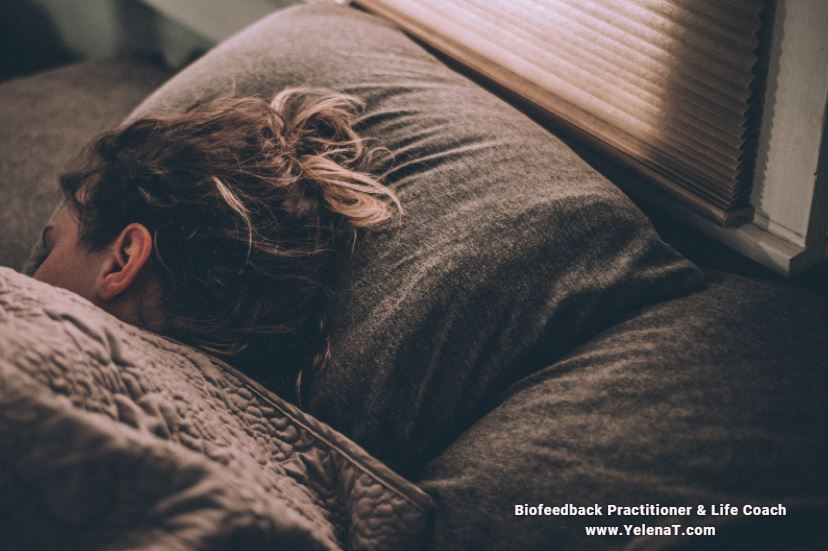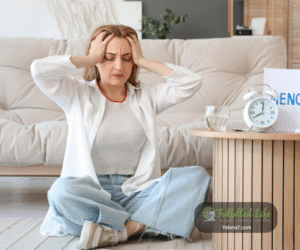In this article, we’ll cover 9 ways to fall asleep faster and improve your sleep.
Having difficulty falling asleep after sunset is among the most common sleep problems. Almost 1/3 of Americans report a problem with nighttime insomnia and waking up during the night, which affects their morning routines. What can one do to fall asleep quickly?
Set a bedtime goal
The first step to getting the best sleep possible is setting a daily goal for bedtime and waking time, says Brian A. Nelson, PhD, former chair of the department of psychiatry and psychology at Penn State College of Medicine in Hershey. “That’s the first thing you should do if you’re having trouble with sleep.” He adds that going to bed at an earlier time will help you fall asleep faster and get more restful sleep. Having a routine and follow through consistently is the key here.
Avoid caffeine at least 6 hours before bed.
If you are a habitual coffee drinker, then this may require some effort as most people need their morning cup. The caffeine can cause more waking at night and affect your body’s ability to sleep well. Studies have found that caffeine can increase the amount of time it takes to fall asleep by up to one hour. The research also shows that the more caffeine you consume, the shorter you sleep will be. Additionally, it claims that adults who drink a lot of caffeinated beverages report lower-quality sleep.
Take a warm bath or shower
In addition to getting your body ready for sleep, a warm bath or shower may help you unwind. This is because it lowers blood pressure and heart rate and eases muscle tension. It may also relax your mind and activate the parasympathetic nervous system, which counteracts stress by slowing down your heart rate, inhibiting digestion, and relaxing muscles. So next time you have problems falling asleep take a warm bath or shower before bedtime to relax yourself for a faster sleep.
Avoid Bright Light and Blue Light at night
Keep your room dark when you sleep. Our body needs darkness in order to produce melatonin, a hormone that helps regulate the sleep-wake cycle. Too much light disrupts this process by inhibiting the secretion of melatonin and delaying your ability to fall asleep. So make sure you install dark curtains or blinds on your windows and avoid turning on bright lights late evening. And if you still see the light through the windows, you might want to invest in a good sleep eye mask.
Additionally, Blue light should be avoided before bedtime because it disrupts your circadian rhythm, the body’s natural sleep-wake cycle, which can make it harder to fall asleep. This is why turning on a laptop or watching TV or looking at your phone right before bed will likely affect your sleep quality.
Schedule a power down hour
Utilize the hour before bed for meditation and relaxation. Taking time to meditate and intentionally relax will help you unwind. It may also help you detach from the busyness of your life. For those with a hectic schedule, setting aside 30 to 60 minutes before bed can be difficult. The good news is, it’s not necessary to meditate or relax for an entire hour to reap the benefits—even just taking 5 minutes will help you.
Gratitude Journal
Keep a gratitude journal on your bedside table. Gratitude has its place in bed. Keep a journal handy, and write down all you are grateful for before going to sleep. It can help feel more at peace and ready for slumber. Write down three things that you are grateful for each night before bed, in addition to three good things that occurred during the day.
“To Do or Worry” Journal
I strongly recommend to have a “worry” or “to do” journal where you can unload everything you are worried about and everything that need to be done. This helps you release the information from your mind and get it out of your head so that it no longer can impede on your quality of sleep.
Even if the worry is about something tiny, write it down before you go to bed and don’t give the worry another thought until morning.
Lower room temperature at night.
When you sleep, your body temperature drops and making the room too warm can make it difficult for you fall asleep. You can either lower down your thermostat, use cooler covers or a fan in the corner of the room to create a more comfortable sleeping environment that will help you wake up feeling refreshed and energetic every morning.
4-7-8 Breathing
When you feel stressed or anxious, which is one of the main reasons for not being able to fall asleep, adrenaline rushes through your veins, your heart beat increases, and your breathing becomes quick and shallow. By holding your breath for seven seconds after a four count, you are increasing the oxygen in your blood by forcing yourself to take in breath. By exhaling steadily for eight seconds at the end, you release carbon dioxide from your lungs.
This technique should be useful in slowing one’s heart rate and increasing oxygen in the bloodstream, and may even make one feel slightly lightheaded, which contributes to a mild sedative-like effect. Breathing like this will instantly relax your cardiovascular system because you are controlling your breath rather than continuing to breathe short shallow gasps of air.
Falling asleep is a natural process that occurs on its own, without the need for any special tricks or substances. Our bodies have a natural need for sleep and we cannot force ourselves to sleep if that need has already been met. Similarly, we do not make ourselves wake up by denying our body the amount of sleep it needs. We can, however, induce a state of relaxation and balancing that helps us fall asleep more easily.
One way to achieve this is by listening to Biofeedback frequencies that balance your energy flow. You can listen to these frequencies right from your phone or tablet while you are lying in bed, to relax your body and mind, and it will help you fall asleep faster.
If you have difficulty falling asleep for reasons other than stress or anxiety, then Biofeedback technology may also be able to help with that. Click below to schedule your FREE Biofeedback session to learn how this break-through technology can help you.
https://yelenat.com/quantum-biofeedback/
Please share this article if you think it’s worth sharing with your friends on Facebook or anywhere else!
Be Healthy! Be Safe! Be Well!








